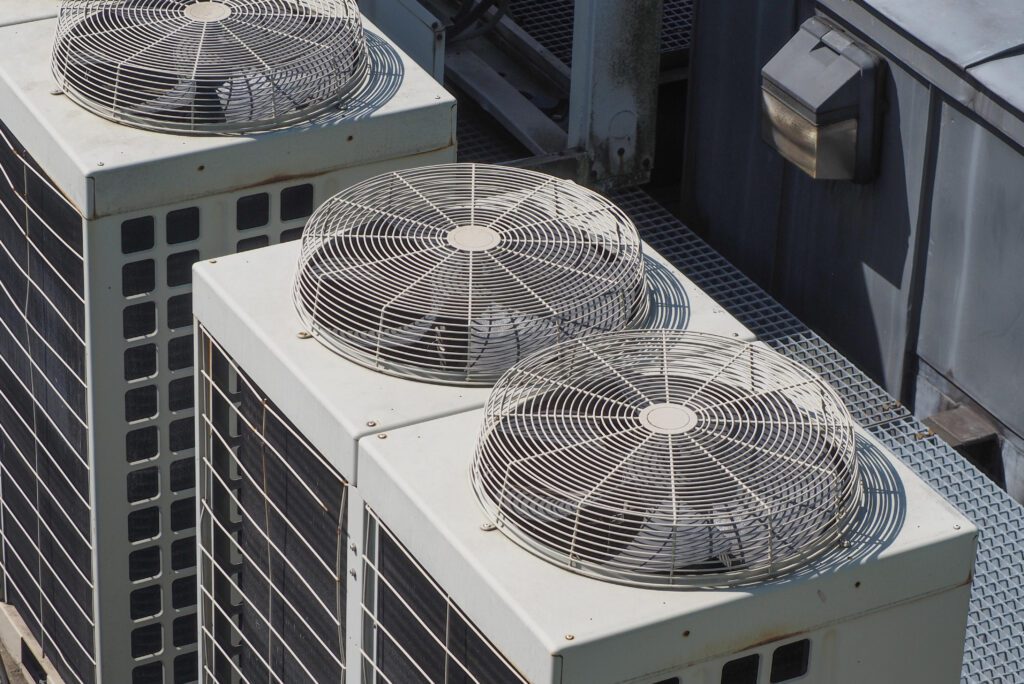In the modern commercial landscape, businesses strive for increased efficiency, not only for financial reasons but also to create a healthier work environment. One of the critical components that contribute to business efficiency is the HVAC (Heating, Ventilation, and Air Conditioning) system. This article presents effective tips to enhance your business efficiency through smart HVAC practices.
Understanding the Role of HVAC in Business Efficiency
HVAC systems are the backbone of climate control in commercial properties. They maintain comfortable temperatures, ensure air quality, and regulate humidity levels, which directly affects employee performance and overall business operations. In addition to these core functions, modern HVAC systems can also integrate advanced technologies such as smart thermostats and energy management systems, allowing businesses to monitor and adjust their climate controls remotely. This capability not only enhances comfort but also provides valuable data that can be used to make informed decisions regarding energy usage and operational efficiency.
When a business optimizes its HVAC system, it not only enhances comfort but also promotes higher productivity among employees. An efficient HVAC system can also reduce operational costs by lowering energy consumption and minimizing the likelihood of unexpected breakdowns. Furthermore, businesses that invest in energy-efficient HVAC solutions may qualify for tax incentives or rebates, making it a financially savvy choice. As environmental concerns continue to rise, utilizing energy-efficient systems can also improve a company’s sustainability profile, appealing to eco-conscious consumers and stakeholders.
The Importance of Regular HVAC Maintenance
Regular maintenance of your HVAC system is essential for its longevity and efficiency. Scheduled check-ups can help identify and fix minor issues before they escalate into significant problems that could disrupt business operations. During these maintenance sessions, technicians can clean filters, check refrigerant levels, and inspect ductwork for leaks, ensuring that the system operates smoothly. This proactive approach not only extends the lifespan of the equipment but also enhances the overall reliability of the HVAC system, reducing the chances of costly emergency repairs.
Moreover, routine maintenance keeps your units running efficiently, which can lead to lower energy costs and improved air quality. It’s recommended to schedule maintenance at least twice a year, typically in the spring and fall, to prepare for the seasonal shifts in temperature. Additionally, businesses can benefit from implementing an HVAC maintenance plan that includes regular inspections and prompt repairs, which can further minimize downtime and ensure that employees remain comfortable and productive throughout the year.
How HVAC Systems Impact Employee Productivity
Employee productivity is closely linked to the comfort of the work environment. A poorly functioning HVAC system can lead to extreme temperatures, inadequate ventilation, and uncomfortable humidity levels, all of which can distract and hinder employee performance. Research indicates that even a slight increase in temperature can lead to decreased cognitive function, making it crucial for businesses to maintain a stable and comfortable climate. Furthermore, the presence of fresh, filtered air is essential for maintaining focus and reducing fatigue, highlighting the importance of a well-functioning ventilation system.
Studies show that comfortable office environments lead to happier employees, which in turn can result in increased productivity. By ensuring your HVAC system is operating at optimal levels, you create a conducive workspace that helps employees focus and perform their tasks efficiently. Additionally, businesses that prioritize employee comfort through effective HVAC management often see reduced absenteeism and turnover rates, as employees are more likely to remain in a workplace where they feel comfortable and valued. Investing in a quality HVAC system and its maintenance is not just about comfort; it’s a strategic move that can significantly impact a company’s bottom line and workplace morale.
Simple Tips to Optimize Your HVAC System
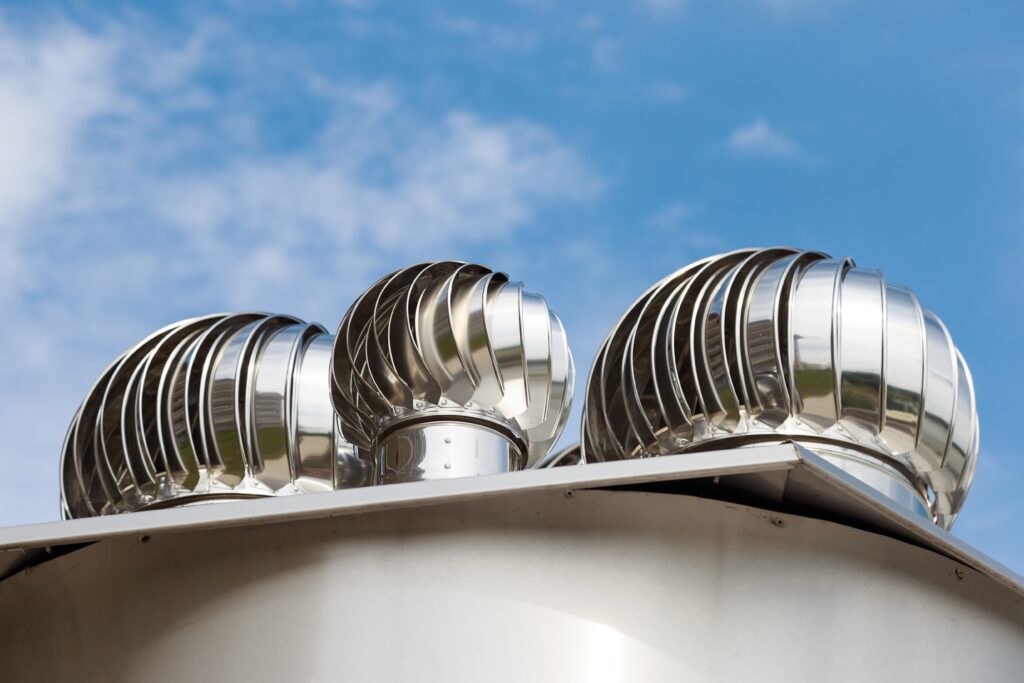
Optimizing your HVAC system can be achieved through straightforward practices that can have a profound impact on efficiency. Here are some actionable tips.
Scheduling Regular Inspections
In addition to regular maintenance, scheduling inspections can be invaluable. Having a technician assess your HVAC system can help identify any anomalies in performance and efficiency.
During inspections, professionals can also clean ducts, check for leaks, and monitor refrigerant levels, ensuring that every part of the system is functioning well and that air quality is not compromised. Regular inspections not only prolong the lifespan of your HVAC system but also enhance its overall performance, making it more reliable during peak usage periods, such as the height of summer or winter. Furthermore, technicians can provide insights into potential upgrades or modifications that could further improve efficiency.
Investing in Energy-Efficient HVAC Systems
If your HVAC system is outdated, consider investing in energy-efficient models. Newer systems use advanced technology to operate more efficiently, which can significantly reduce your energy bills.
Energy-efficient systems often come with features like variable speed fans and smart thermostats that help manage energy use more effectively, resulting in long-term savings and environmental benefits. Additionally, many energy-efficient models qualify for rebates or tax incentives, making the initial investment more manageable. By upgrading, you not only contribute to a greener planet by reducing your carbon footprint but also enhance the comfort of your space with better temperature control and quieter operation.
Proper Ventilation for Improved Air Quality
Proper ventilation is crucial for maintaining air quality in your commercial space. A well-ventilated environment discourages the growth of mold and bacteria, which can cause health issues among employees and create an uncomfortable working atmosphere.
Ensure that your HVAC system includes adequate outdoor air intake and exhaust systems, as well as air filters that are changed regularly. This will help maintain clean air and promote a healthier work environment. Additionally, consider integrating air purification systems that can further enhance indoor air quality by removing allergens, dust, and other pollutants. Investing in humidity control measures can also be beneficial, as maintaining optimal humidity levels helps prevent the proliferation of mold and enhances overall comfort within the space.
The Financial Benefits of an Efficient HVAC System
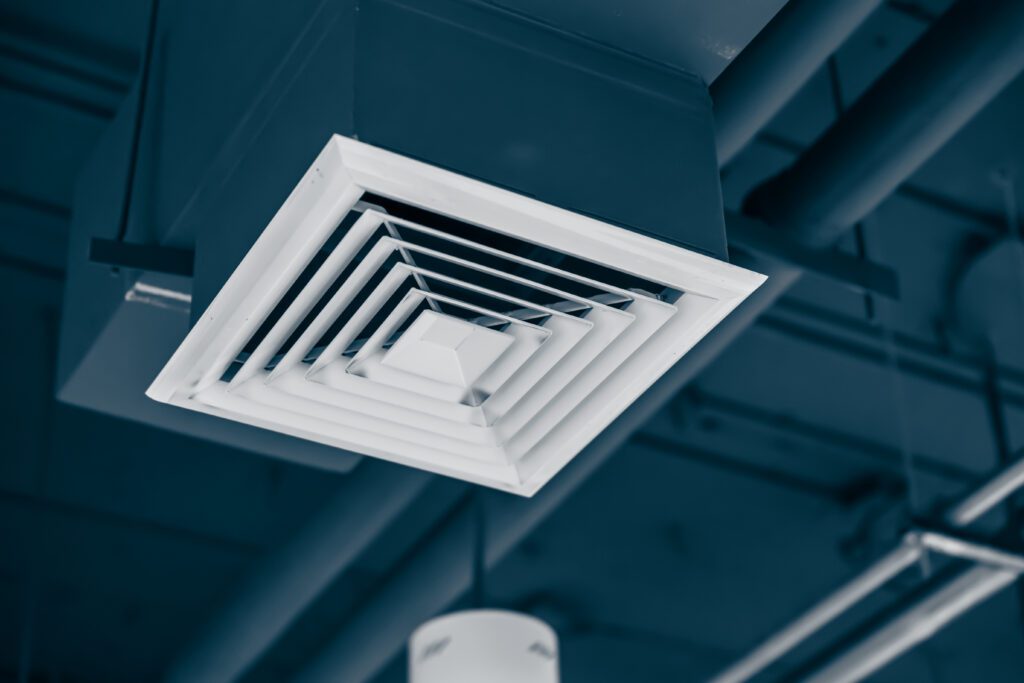
Beyond comforts, efficiency in your HVAC system can lead to notable financial benefits, impacting your bottom line considerably.
Lower Energy Bills
One of the most immediate benefits of an efficient HVAC system is the reduction in energy bills. When systems operate at peak efficiency, they consume less energy, directly translating to lower monthly expenditures.
According to various studies, businesses can save anywhere from 20% to 50% on energy costs through energy-efficient upgrades and regular maintenance. This allows companies to allocate resources to other critical areas of the business. Additionally, many utility companies offer rebates or incentives for businesses that invest in energy-efficient systems, further enhancing the financial benefits. By taking advantage of these programs, businesses can offset initial investment costs and see a quicker return on their energy efficiency initiatives.
Reduced Repair Costs
A consistent maintenance schedule helps to reduce the likelihood of costly repairs down the line. When HVAC systems are inspected and serviced regularly, potential issues can be identified early, preventing the need for major repairs or system replacements.
Investing in maintenance plans also provides a better peace of mind, allowing business owners to focus on their core activities without worrying about unexpected HVAC failures impacting operations. Moreover, regular maintenance can improve indoor air quality, which not only benefits employee health and productivity but can also reduce costs associated with sick leave and employee turnover. A well-maintained system ensures that air filters are clean and functioning properly, leading to a healthier work environment.
Extended Lifespan of Your HVAC System
Regular care can extend the lifespan of your HVAC system. Most systems last between 10 to 15 years, but with proper maintenance, many can continue to operate efficiently for even longer periods.
This longevity reduces the frequency of capital expenditures on equipment replacements and installation, allowing businesses to budget accordingly for the future and invest in growth opportunities. Furthermore, an extended lifespan means that businesses can maximize their return on investment over time. By delaying the need for a new system, companies can allocate funds to other strategic initiatives, such as employee training or technology upgrades, which can drive innovation and improve overall competitiveness in the market.
Implementing Smart HVAC Controls for Better Efficiency
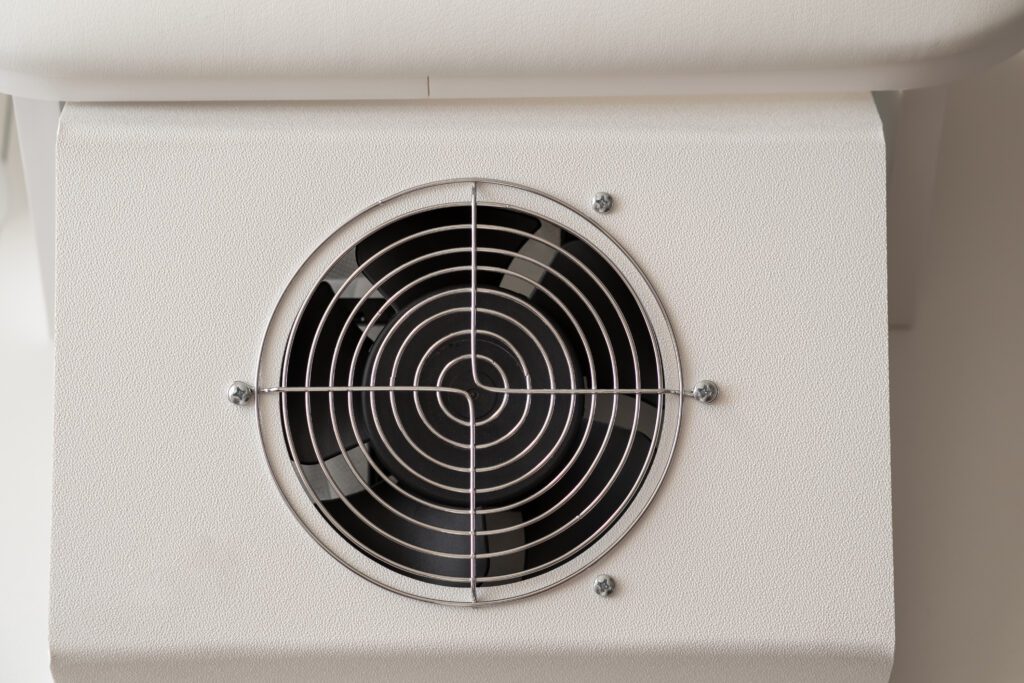
Incorporating smart technology into your HVAC system can take operational efficiency to the next level. Smart controls offer enhanced management of heating and cooling systems, allowing for real-time adjustments based on occupancy and environmental conditions. This level of automation not only streamlines operations but also contributes to a more sustainable approach to energy consumption.
The Role of Thermostats in Energy Management
Smart thermostats can significantly improve HVAC efficiency by enabling more precise temperature control. These devices can learn the habits of a business’s occupants, adjusting heating and cooling automatically for maximum comfort at minimal energy costs. Advanced models even integrate with weather forecasts, anticipating changes in temperature and adjusting settings proactively to maintain a consistent indoor climate.
Using programmable settings, businesses can lower temperatures outside of working hours or when rooms are unoccupied, further optimizing energy usage and reducing costs. Additionally, many smart thermostats provide detailed energy usage reports, allowing businesses to identify patterns and make informed decisions about their HVAC usage. This data-driven approach can lead to further improvements in efficiency and cost savings over time.
Benefits of Zoning Systems
Zoning systems allow for temperature regulation in different areas of a building, facilitating customized climate control where needed. This can lead to significant energy savings, as areas that are not in use don’t require full heating or cooling. By utilizing dampers and multiple thermostats, businesses can ensure that energy is only expended where it is truly necessary, which is especially beneficial in larger facilities with diverse space requirements.
By implementing zoning, businesses can create a more comfortable atmosphere for employees and visitors while minimizing energy waste, ensuring that conditions are optimal for productivity throughout the entire environment. Furthermore, zoning systems can be integrated with smart technology, enabling remote access and control via mobile devices. This means that managers can adjust settings on-the-go, responding to changes in occupancy or external weather conditions in real-time, thus enhancing overall operational flexibility and comfort levels across the building.
Professional HVAC Services for Business Efficiency
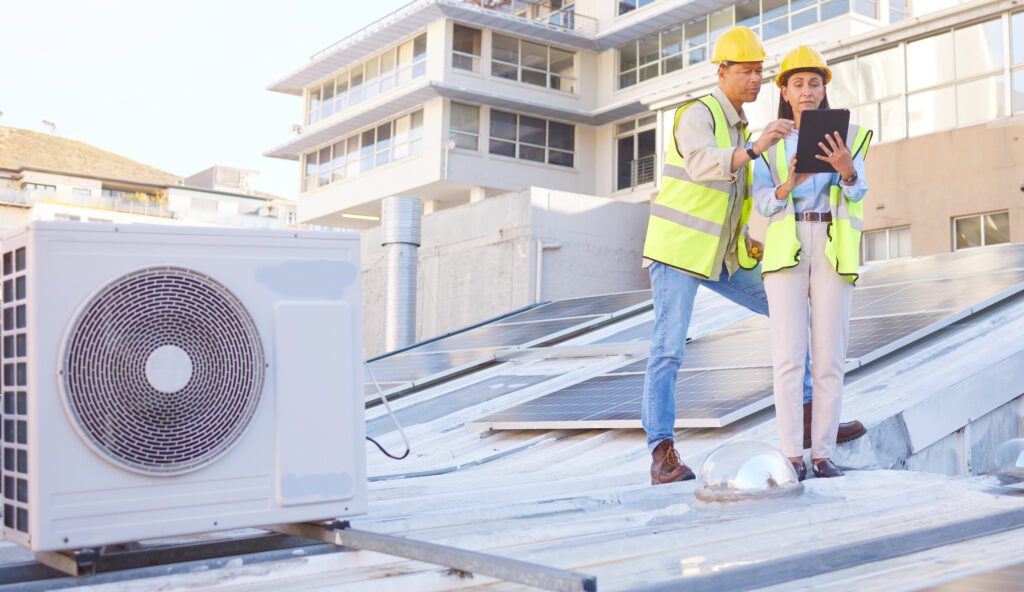
Engaging professional HVAC services can provide expertise and insights that ensure your systems are operating at their best. Knowing when to call in the professionals can make a significant difference. Regular maintenance and timely repairs can extend the lifespan of your equipment, which is crucial for minimizing downtime and maximizing productivity in your business environment.
When to Call a Professional HVAC Technician
Indicators that you may need professional assistance include unusual noises from the system, inconsistent temperatures, or increased energy bills. If you notice any of these signs, it is essential to contact a qualified HVAC technician promptly. Ignoring these warning signs can lead to more severe issues down the line, such as complete system failures or costly emergency repairs that could have been avoided with early intervention.
Timely interventions by professionals can not only save you money but also enhance the overall efficiency of your HVAC system, ensuring it continues to perform optimally. Regular check-ups can help identify potential problems before they escalate, allowing for a more manageable and cost-effective approach to HVAC maintenance. Furthermore, a well-maintained system operates more efficiently, which can lead to a noticeable reduction in energy consumption and associated costs.
Choosing the Right HVAC Service Provider
Choosing a reliable HVAC service provider can be a daunting task. Look for companies with positive customer reviews, solid warranties on their work, and extensive experience in commercial HVAC systems. It’s also beneficial to seek out providers who offer comprehensive service packages, including installation, maintenance, and emergency repair services, to ensure that all your HVAC needs are met under one roof.
Additionally, ensure that the technicians are certified and up-to-date with the latest technologies and practices in the industry. A trusted service provider can act as a partner in maintaining your business’s HVAC efficiency for years to come. They should also be willing to provide transparent pricing and detailed explanations of the services they offer, allowing you to make informed decisions about your HVAC needs. Building a strong relationship with your HVAC provider can lead to better service and a deeper understanding of your specific system requirements.
In addition to traditional HVAC services, consider providers that specialize in energy-efficient solutions and smart technology integration. These advancements can optimize your system’s performance and help you stay ahead of regulatory requirements and sustainability goals. Investing in energy-efficient HVAC systems not only reduces your carbon footprint but can also enhance your business’s reputation as an environmentally conscious organization, appealing to both customers and employees alike.

